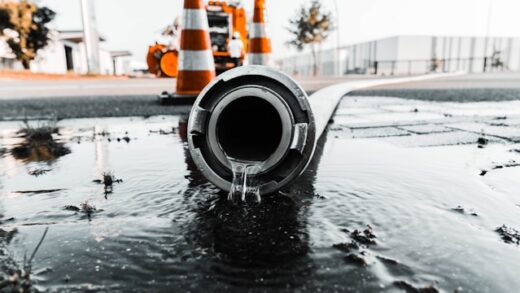7 Signs Your Vehicle Needs Professional Diesel Fuel Service
Diesel engines have longer lifespans than gas-powered vehicles but still need routine maintenance. If you’ve noticed a loss in your diesel truck’s power, fuel efficiency, or overall performance, it’s time to take action.
Diesel fuel additives like Power Service help restore lost power and boost the cetane to prevent fuel degradation. They also help remove water from the fuel tank and stop bacteria and algae growth.
Excessive Exhaust Smoke
If you notice a puff of smoke from your exhaust that looks more like steam than white, it could indicate the problem is severe. Smoke with a blue tinge usually means the engine is burning oil, which can damage the engine if it goes unchecked.
The blue smoke you see when your car is warm-up is often caused by moisture that settles in the tailpipe and turns into steam. However, if the smoke is constant and persists long after your vehicle has warmed up, it can indicate a coolant leak or head gasket failure that may require extensive engine work.
No Start
If your diesel vehicle cranks but fails to fire up after turning the key in the ignition, it is considered a no-start. This can be caused by various issues, from a defective starter to a faulty alternator.
Reduced engine power also indicates that a professional diesel fuel service Far Hills, NJ, is needed. This could result from many issues, including a dirty diesel fuel system, injector problems, or turbocharger problems.
The diesel fuel system delivers diesel to the combustion chamber at high pressures and is critical for balanced air-to-fuel ratios. When these parts break down, it causes an imbalance, resulting in excessive exhaust smoke.
Knocking Sounds
If your engine’s smooth rumble and roar are replaced by a tapping or pinging sound, you must know there’s a problem under the hood. This noise, called engine knock, indicates that your compression system isn’t working correctly and could indicate various issues, such as worn-out bearings or a damaged crankshaft.
A knocking sound typically starts quietly and gets louder if left untreated. The best way to prevent this is to get your diesel vehicle serviced before it’s too late.
Low Fuel Efficiency
You probably know that your car’s fuel efficiency will decrease as it ages. But did you know that fuel efficiency changes based on how and when you drive it?
Changing your driving habits can increase your mileage. Avoid revving the engine and sudden acceleration at traffic lights.
Low tire pressure can also affect fuel economy. Make sure your tires are inflated to the recommended PSI.
Clogged or damaged fuel injectors can cause a fuel pump to overfuel, lowering fuel efficiency. A fuel injector cleaning service can restore them to their normal function.
High Oil or Coolant Consumption
Seeing oil pouring out of the dipstick tube or watching the engine coolant level rise could indicate that you need to add more diesel fuel. A loss of power and acceleration may mean your car is running low on coolant.
Coolant and engine oil are designed to co-exist within the vehicle but are separated by seals. If a gasket fails, coolant can leak into engine oil and vice versa.
Engine oil contaminated with coolant containing ethylene glycol (coolant) does not act well as a lubricant and can cause severe engine damage quickly. The oil may have a milky or gravy-like color and will smell sweet.
Excessive Blow-by
While engine blow-by is inevitable to some extent, too much can lead to expensive damage. Blow-by is caused by air, fuel, and combustion gases leaking past the piston rings and into the crankcase ventilation system.
This mixture can contain water, carbon dioxide, unburned diesel fuel, and other chemicals. Over time, it can cause carbon buildup on the piston rings, ring grooves, and cylinder walls (also known as cylinder glaze).
This will eventually lead to oil consumption, reduced compression, sluggish engine performance, and an increased risk of runaway engines.
Poor Fuel Economy
Diesel engines are powerful and efficient but require regular maintenance to keep them running correctly. When you notice poor fuel economy, it’s a sign that something is wrong with your diesel fuel injector system.
A healthy fuel system is free of water, microbial contamination, and particulate matter. A proactive plan of inspection and maintenance helps prevent these problems. Regularly inspecting and replacing air, oil, and fuel filters is also essential. Lastly, emptying your water separator manually or automatically (depending on the model) is necessary to avoid moisture buildup.



